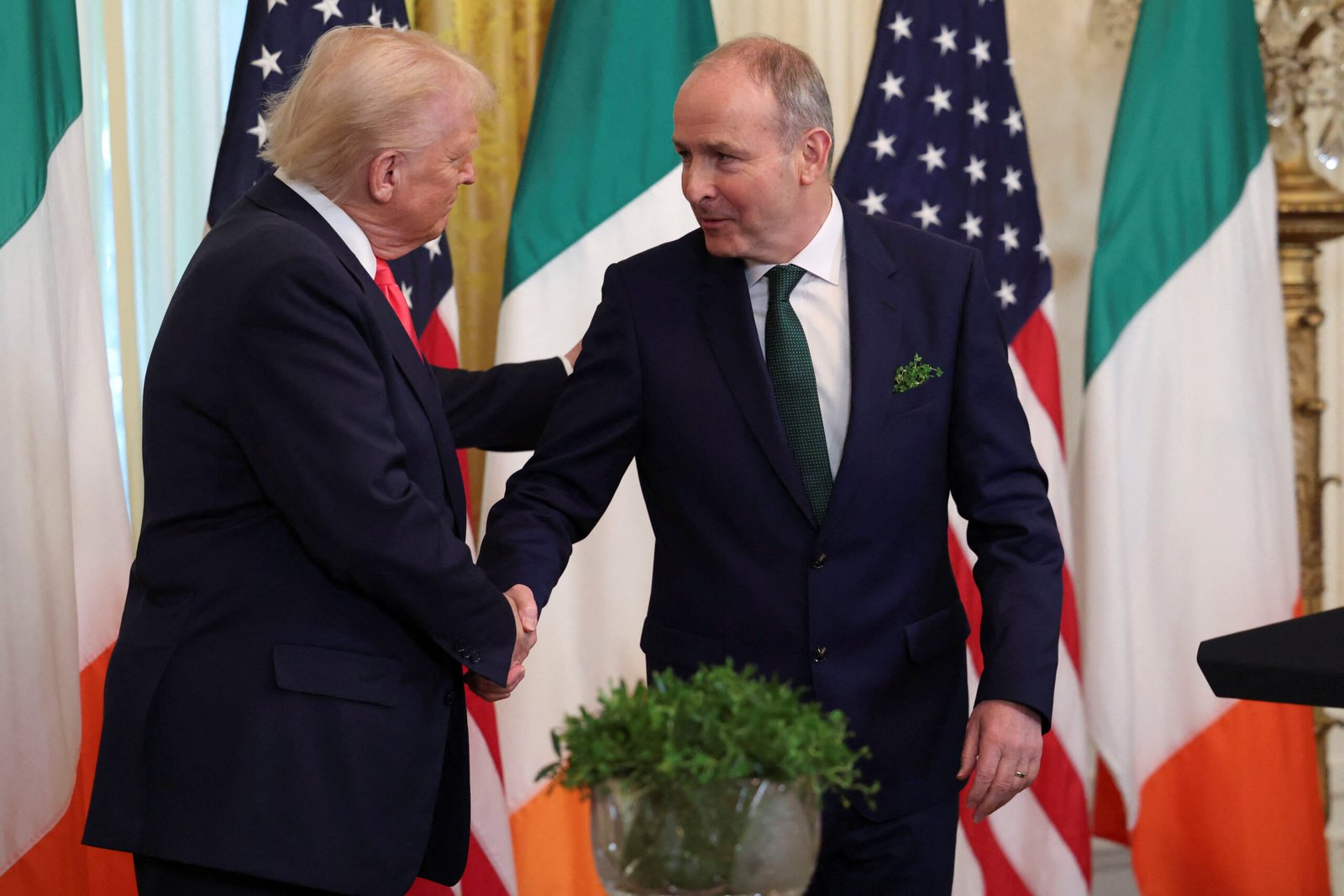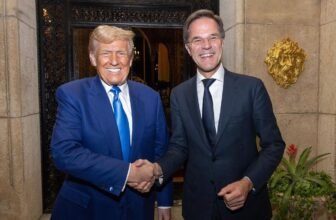
Introduction
On 12 March 2025, Irish Taoiseach Micheál Martin visited United States President Donald Trump at the White House for the annual St. Patrick’s Day celebrations. The meeting, though, was overshadowed by President Trump’s cutting critiques of Ireland’s trade practices, including its role in drawing U.S. pharmaceutical companies to the country and the subsequent trade deficit.
President Trump’s Criticisms
President Trump accused Ireland during the meeting of drawing American pharmaceutical companies with favorable taxation policies, causing a large trade deficit for the United States. Ireland “stole our pharmaceutical companies” and previous U.S. administrations were to blame, he said. Trump also complained about how the European Union treats the U.S., saying the EU goes after the likes of America-based companies such as Apple.
Taoiseach Martin’s Response
Speaking in response, Taoiseach Micheál Martin said they had many pharmaceutical companies in Ireland, but that there was significant potential in the U.S. He stressed the economic ties between the two countries, citing investments like purchases Ryanair made from Boeing. Martin also took part in other diplomatic activities during his visit, calling the US-Irish relationship one of the strongest in the world and highlighting it as a partnership in peace and economic collaboration.
Trade Deficit Concerns
The U.S. goods trade deficit with Ireland has drawn criticism. Ireland’s goods trade surplus with the United States reached a record €50 billion in 2024, buoyed by a massive increase in the drugs brought to U.S. shores. Though Ireland’s services deficit with the U.S. in 2023 was much bigger, €134 billion, largely because U.S. companies buy valuable intellectual property and royalties, Trump’s trade policy has focused on shrinking U.S. goods deficits by imposing tariffs.
The Possible Effect of U.S. Tariffs
President Trump has threatened tariffs on U.S. companies that move overseas. Previous administrations, he said, should have placed tariffs to discourage companies from relocating, saying, “I would have said: That’s OK — that your jobs leave us — but if you want to sell anything in the United States, I’m going to put a 200 percent tariff on you.” Such action would have profound implications for U.S.-Ireland trade relations and the future of multinational corporations.
Conclusion
President Trump and Taoiseach Martin met recently to discuss U.S.-Ireland trade relations, which are troublesome. Although both leaders recognized the importance of the strong economic ties between their two countries, contrasting views on trade practices and taxation policies point to the obstacles that remain ahead. Rats digression and negotiations will be a most important part in surmounting these issues and delivering a mutually beneficial relationship.
FAQs
What criticisms did President Trump emphasize during the meeting with the Taoiseach, Micheál Martin?
President Trump said it was because Ireland has exploited U.S. companies at the expense of American workers with favorable taxation policies that attract U.S. pharmaceutical companies and help lead to the U.S. trade deficit.
What was Taoiseach Micheál Martin’s response to the criticisms?
Martin said while the pharmaceutical industry is already successful in Ireland, there is still much maker for U.S. companies to capture, and he underlined the strong economic ties that exist between the two nations.
How much does the U.S.-Ireland trade deficit look like now?
The surplus of goods trade across the Irish Sea on that basis was at a record €50 billion with the United States in 2024 alone, due in no small part to soaring sales of drugs to the U.S.
What steps did President Trump propose to reduce the defendant?
President Trump signaled that he would be using tariffs to dissuade U.S. companies, such as General Motors and Land Rover, from moving to other countries, implying that he should have imposed tariffs in the past to stop companies from leaving the country.
What will all of this mean for U.S.-Ireland relations?
These differing perspectives on trade practices and taxation policies raise challenges to U.S.-Ireland relations. Effective communication on both sides of the negotiating table will be key to maintaining a win-win scenario.






